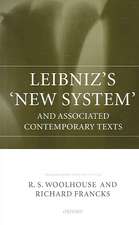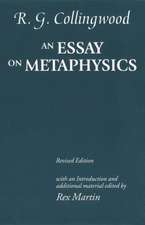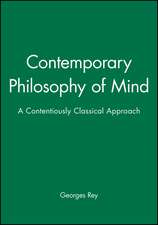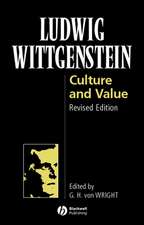Aspects of Hobbes
Autor Noel Malcolmen Limba Engleză Paperback – 2 sep 2004
Preț: 338.53 lei
Preț vechi: 380.17 lei
-11% Nou
Puncte Express: 508
Preț estimativ în valută:
64.78€ • 67.81$ • 53.60£
64.78€ • 67.81$ • 53.60£
Carte tipărită la comandă
Livrare economică 25-31 martie
Preluare comenzi: 021 569.72.76
Specificații
ISBN-13: 9780199275403
ISBN-10: 0199275408
Pagini: 660
Ilustrații: black & white illustrations
Dimensiuni: 157 x 233 x 36 mm
Greutate: 0.99 kg
Editura: OUP OXFORD
Colecția OUP Oxford
Locul publicării:Oxford, United Kingdom
ISBN-10: 0199275408
Pagini: 660
Ilustrații: black & white illustrations
Dimensiuni: 157 x 233 x 36 mm
Greutate: 0.99 kg
Editura: OUP OXFORD
Colecția OUP Oxford
Locul publicării:Oxford, United Kingdom
Recenzii
Aspects of Hobbes is a work of profound scholarship, displaying a breadth and depth of erudition that is beyond praise. But it is much more than that: Malcolm never loses the reader in the fascinating details of Hobbes's intellectual background and influence that he has uncovered. By linking the minutiae of his life and times with the core claims of his works he has given us a remarkable study in early modern European intellectual history.
Many have written on Hobbes, but few have had the wealth and depth of historical knowledge, the linguistic and bibliographic skills and, most significantly, the philosophical rigorousness which Malcolm deploys consistently in Aspects of Hobbes, a collection of 14 impressive, and often also delightful, scholarly papers.
Magnificent ... The book is a monument to scholarship. It shows what can be achieved when a fine historian gets to grips with a great philosopher.
Many have written on Hobbes, but few have had the wealth and depth of historical knowledge, the linguistic and bibliographic skills and, most significantly, the philosophical rigorousness which Malcolm deploys consistently in Aspects of Hobbes, a collection of 14 impressive, and often also delightful, scholarly papers.
Magnificent ... The book is a monument to scholarship. It shows what can be achieved when a fine historian gets to grips with a great philosopher.

















